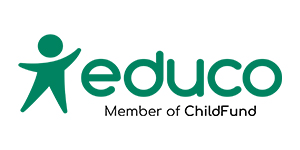
Educo’s social impact measurement system collects information directly from participants, including their opinions and their own perceptions of their rights and wellbeing, the changes they perceive following their participation in the project and how this has impacted their lives, those of their peers, families and communities. Educo also collects their opinion on the elements they value most and least in the project, their suggestions, complaints and commendations, and their overall level of satisfaction with the project. Educo has a digital platform for visualising the results that facilitates the analysis. Based on the example of the projects introduced on the platform, Educo has been able to observe over 85% progress in the following indicators for 5 projects.
The Social Impact Measurement system is a process that Educo has been piloting since 2021, with the creation of the 25 global indicators; updates were provided in 2022 regarding how the organisation was developing and devising different data collection methodologies and adapting them to age-appropriate approaches. The system is now being updated, enabling children and adolescents to actively and safely validate, provide feedback and recommend improvements to Educo’s work. The report also noted that the organisation received positive results through this tool, with a satisfaction level of 88.23% for a total of 13 projects.
Educo’s approach to collecting data directly from participants, particularly children, ensures that the voices of those most affected by the projects are heard and considered. By gathering participants’ opinions, perceptions, and feedback, Educo places the beneficiaries at the center of the evaluation process. It also empowers participants by valuing their insights and experiences, which can lead to more trust and sustainable outcomes. By collecting a wide range of feedback, Educo can gain a comprehensive understanding of the projects’ effectiveness. The detailed analysis can show what aspects of the projects are working well and where improvements are needed. The inclusion of both quantitative indicators (e.g., satisfaction levels) and qualitative feedback (e.g., suggestions and complaints) enriches the evaluation too, providing first-hand validated evidence of Educo’s approach, while maintaining donor’s confidence and securing future funding for Educo.